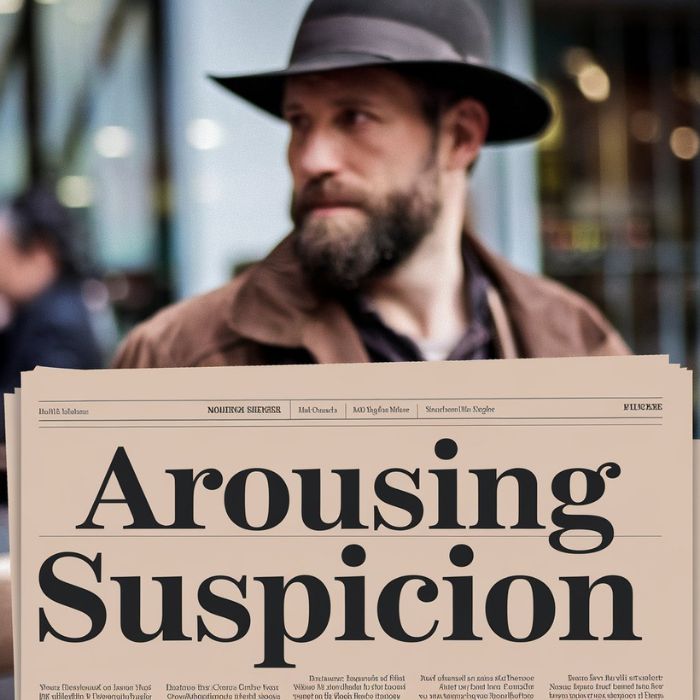Overview
Investigative Journalism and its Importance
Investigative journalism is more than just reporting; it’s a relentless pursuit of the truth. This formidable field dives deep into issues that others might shy away from, often uncovering hidden injustices and exposing powerful figures. In an era where information is abundant but trust in media can waver, the role of investigative journalists has never been more crucial.
Among the institutions championing this craft, The New York Times stands out as a beacon of integrity and courage. With its ability to arousing suspicion nyt and challenge narratives, it has shaped public discourse on critical matters. From political scandals to societal injustices, the NYT’s investigations have sparked conversations that echo beyond their pages.
What makes these stories so compelling? What process do journalists follow to delve beneath the surface? And what responsibilities come with wielding such influence? Join us as we explore these questions through notable case studies that highlight how investigative journalism not only informs but also empowers society at large.
The Role of the New York Times in Arousing Suspicion
The New York Times has long been a stalwart in investigative journalism. Its influence reaches far beyond mere reporting; it shapes public perception and prompts critical discourse.
By elevating stories that challenge the status quo, the Times encourages readers to question authority. Each article serves as a catalyst for scrutiny, igniting curiosity about institutional failures and societal injustices.
When the paper breaks a major story, it doesn’t just inform—it provokes thought and raises eyebrows. The careful choice of language can instill doubt where complacency once reigned.
Whether uncovering government malfeasance or exposing corporate negligence, its role is pivotal. The Times acts not only as an information provider but also as a watchdog, compelling individuals to look deeper into issues affecting their lives.
In this capacity, suspicion becomes an invaluable tool for accountability and change.
Case Studies: Notable Articles by the NYT that Raised Suspicion
The New York Times has a storied history of uncovering truths that rock the establishment. One of its most notable investigations was into the Watergate scandal. Journalists Bob Woodward and Carl Bernstein peeled back layers of deceit, revealing corruption at the highest levels of government. Their relentless pursuit changed American journalism forever.
Then came the Pentagon Papers. This groundbreaking report exposed secret military decisions about Vietnam, igniting public outrage and distrust in government narratives. The NYT faced legal challenges but stood firm, proving that transparency is vital for democracy.
More recently, the investigation into Harvey Weinstein’s sexual assault allegations shifted cultural conversations around power dynamics in Hollywood. The thorough reporting not only highlighted individual stories but also sparked a global movement against sexual harassment.
Each article exemplifies how investigative journalism can challenge authority and reveal hidden truths to society.
– Watergate Scandal
The Watergate scandal stands as a pivotal moment in American journalism. It began with a simple break-in at the Democratic National Committee headquarters and spiraled into a national crisis.
Reporters Bob Woodward and Carl Bernstein of The New York Times played crucial roles in uncovering the truth. Their relentless pursuit led to revelations about corruption, abuse of power, and cover-ups at the highest levels of government.
As they dug deeper, suspicion grew around President Nixon’s administration. Tapes surfaced, revealing conversations that hinted at deceit. The story captivated the nation and highlighted journalism’s role as a watchdog.
This investigation not only changed political dynamics but also bolstered public trust in media outlets capable of confronting authority. Journalistic courage became synonymous with this era, setting standards for future investigations that continue to resonate today.
– Pentagon Papers
The Pentagon Papers transformed how America viewed its government. This secret Department of Defense study revealed the truth behind the Vietnam War. It exposed a pattern of deception from political leaders regarding military engagement.
When The New York Times published excerpts in 1971, it sent shockwaves across the nation. Citizens were confronted with unsettling facts—they had been misled about key aspects of the conflict.
This release not only stirred public outrage but also raised critical questions about press freedom and national security. The Nixon administration fought back fiercely, attempting to halt publication through legal means.
Yet, this pivotal moment highlighted journalism’s role as a watchdog. Investigative reporting became an essential pillar of democracy, reminding citizens that transparency is vital for accountability in governance.
– Harvey Weinstein Sexual Assault Allegations
The Harvey Weinstein case marked a seismic shift in how society addresses sexual misconduct. The New York Times unveiled allegations against the once-powerful Hollywood mogul, igniting a national conversation.
This investigation revealed a pattern of abuse spanning decades. Former employees and actresses came forward with chilling accounts, challenging the silence that had long surrounded Weinstein’s behavior.
What made this piece stand out was its thoroughness. Journalists Megan Twohey and Jodi Kantor meticulously documented testimonies while uncovering internal documents. Their relentless pursuit of truth sparked global outrage.
The impact reverberated beyond Hollywood. It empowered countless individuals to share their stories, leading to the #MeToo movement. This moment catalyzed change across various industries and forced conversations about consent, power dynamics, and accountability.
Weinstein’s eventual downfall symbolized more than just one man’s reckoning; it represented a collective awakening that reshaped societal norms around sexual violence.
The Process of Conducting an Investigation
Conducting an investigation is a meticulous and often complex endeavor. It begins with a clear question or lead, something that piques curiosity. Journalists dive deep into research, sifting through documents, public records, and data.
Interviews play a crucial role in this process. They gather insights from sources who may have firsthand experience or knowledge. Building trust is essential here; informants need to feel secure sharing sensitive information.
As the pieces come together, verification becomes key. Each fact must be corroborated by reliable sources to ensure accuracy. This stage can be time-consuming but is vital for credibility.
Compiling findings requires careful organization. The goal is to present the story clearly and compellingly while maintaining ethical standards throughout the journey of discovery. Every step matters in painting an accurate picture of truth amidst layers of complexity.
Ethical Considerations for Investigative Journalists
Investigative journalism walks a fine line between the pursuit of truth and ethical responsibility. Journalists must navigate the complexities of privacy, especially when dealing with sensitive information or vulnerable individuals.
Consent is crucial. Obtaining permission from sources can prevent potential harm and ensure respect for personal boundaries. However, there are instances where anonymity becomes paramount to protect whistleblowers or victims.
Accuracy is non-negotiable in this field. Misrepresenting facts can not only damage reputations but also undermine public trust in the media as a whole. Thorough fact-checking helps maintain credibility.
Transparency fosters accountability among journalists. Disclosing methods and motivations behind investigations builds trust with audiences while encouraging responsible reporting practices.
Understanding the implications of their work is vital for journalists engaged in high-stakes stories. The impact on society should always be weighed against personal agendas or commercial interests, ensuring that integrity remains at the forefront of investigative efforts.
The Impact of Investigative Journalism on Society
Investigative journalism wields significant power in shaping public discourse. It shines a light on hidden truths, often revealing injustices that would otherwise go unchecked.
When journalists dig deep, they uncover stories that resonate with the community’s pulse. This process fosters accountability among those in positions of authority. Citizens become informed participants rather than passive observers.
The revelations brought forth can lead to policy changes and social movements. Issues like corruption, environmental crises, or human rights abuses gain visibility through relentless investigation.
Moreover, it cultivates a culture of skepticism towards institutions. Readers learn to question narratives presented by powerful entities, promoting critical thinking within society.
In essence, investigative journalism acts as both a watchdog and catalyst for change. Its impact ripples across communities, empowering individuals to demand transparency and justice.
Conclusion: The Power and Responsibility
The landscape of journalism is ever-changing, yet investigative journalism remains a cornerstone of democratic society. It’s about digging deeper, challenging the status quo, and holding power accountable. The New York Times has played an integral role in this mission, skillfully arousing suspicion when necessary.
Through landmark articles like those on the Watergate scandal and the Pentagon Papers, we’ve seen how one publication can shift public perception and policy. These stories not only exposed corruption but also galvanized movements for change across the nation.
Investigative journalists are tasked with immense responsibility. They must tread carefully through layers of truth and deception to unveil stories that matter. Ethics play a pivotal role here; accuracy should never be sacrificed for sensationalism or speed.
The impact of these investigations reverberates far beyond headlines—they spark conversations, influence elections, and even inspire legislative reforms. Each article holds potential to ignite awareness among readers who may have been unaware or misled.
As we reflect on the work done by outlets like The New York Times, it becomes evident that investigative journalism is both powerful and essential in maintaining transparency within our societal structures. Navigating this complex terrain requires courage—a willingness to confront uncomfortable truths for the greater good.
In honoring this craft’s legacy while pushing forward into new realms of inquiry lies our collective hope for a more informed world where justice prevails over complacency.











